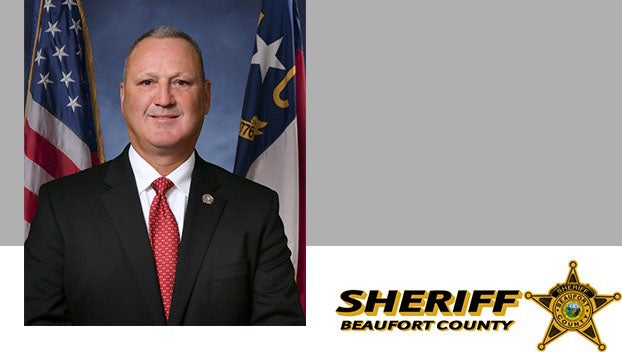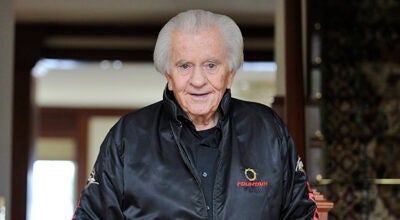Cook pushes ban
Published 9:19 pm Tuesday, February 21, 2012
Asks voters to support constitutional measure banning gay marriage
In a recently released letter, Rep. Bill Cook, R-Beaufort, urges constituents to vote for the “Marriage Protection Amendment.”
Cook said he emailed the letter to about 70 voters, hoping area media would pick it up.
“Marriage is under attack across the nation,” Cook wrote. “In fact, North Carolina’s marriage statutes are presently being challenged in state court in Guilford County. If activist judges or politicians were to succeed in redefining marriage in North Carolina, there would be profound consequences for religious organizations, individuals, medical professionals, and small businesses — and for society itself.”
In September 2011, the Washington Daily News asked Cook if he would campaign for the amendment.
If approved by a majority of voters in the May 8 primary election, the amendment would result in a state constitutional amendment banning gay marriage or civil unions in North Carolina.
“I think I’ll leave the questions to voters,” the Cypress Landing resident said at the time. “The table is set for them to make their decision.”
Cook has pointed out he voted in favor of placing the amendment on the ballot.
In a follow-up interview last week, he was asked why he’d decided to take an active role in campaigning for the amendment.
“Let me be real clear: the impression I get is there’s an awful lot of people here in the east who do not know about this issue and don’t even realize there’s a referendum, and I want to fix that,” he commented. “I’m in favor of this amendment, and I want to make sure that everybody in this part of the world knows they have the opportunity to make themselves heard on this issue.”
The amendment wouldn’t prohibit businesses from providing the same employee benefits they’ve provided in the past, he said.
“This doesn’t really affect people who are homosexual in any necessarily bad way from a money point of view,” he said.
Old North State law already prohibits gay marriage and civil unions, but proponents of the amendment say a court challenge could overturn that law in the absence of a constitutional amendment.
Cook is surrendering his House re-election bid in favor of a run for state Senate in District 1.
His primary opponent, fellow Republican Jerry Evans of Washington, concurs with Cook on the amendment issue.
“I’m a Christian, and I just believe that’s the best scenario for the people of North Carolina,” Evans said. “That’s where the values start, at home. The Bible says one man, one woman.”
Jeremy Kennedy is campaign manager of The Coalition to Protect North Carolina Families in Raleigh. The coalition and its 109 members are campaigning against the amendment.
While it appears the amendment would permit businesses to continue providing benefits to whomever they wished, “Amendments like this keep (companies) from being able to recruit top talent from across the country to come here and work for their companies in North Carolina,” Kennedy said.
Thirty-seven states have statutes or amendments barring official recognition of same-sex marriage, he said.
Seven states and the District of Columbia recognize gay marriage, while several more accept civil unions to some degree, according to Kennedy. Maine has a limited domestic partnership registry, he added.
Overall, just over 20 states provide for some kind of legal relationship between unmarried people, he said.
Kennedy said the coalition’s internal polling echoes a broader trend: that many of the state’s residents wouldn’t support the amendment on the table if they knew about all of its potential consequences.
He said several of the state’s local governments offer domestic-partnership coverage to unmarried employees, and that children of unwed couples could lose insurance benefits because of the amendment.
In some situations where no prior wills or contracts exist, the new law might cause problems for unmarried individuals who need to make end-of-life decisions about their partners, he acknowledged.
To Cook, the heart of the debate is the protection of marriage, an institution he contends is under attack.
“You could not say that all homosexual families are bad,” he said. “I wouldn’t begin to say that. I don’t think that’s true at all. I’m just looking at this from the point of view that we have to protect a major building block of society.”





